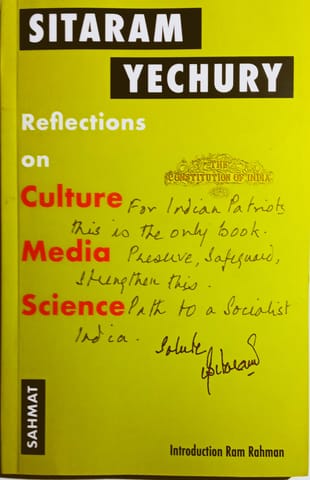WELCOME TO MIDLAND BOOK SHOP!
SHOP FOR
- Contemporary Fiction
- Contemporary Fiction
- Children
- Children
- Comics & Graphic Novels
- Comics & Graphic Novels
- Non-Fiction
- Non-Fiction
- Fiction
- Fiction
Shop No.20, Aurobindo Palace Market, Hauz Khas, Near Church +91 9818282497 | 011 26867121 110016 New Delhi IN
Midland The Book Shop ™
Shop No.20, Aurobindo Palace Market, Hauz Khas, Near Church +91 9818282497 | 011 26867121 New Delhi, IN
+919871604786 https://www.midlandbookshop.com/s/607fe93d7eafcac1f2c73ea4/677cda367903fd013d69b606/without-tag-line-480x480.png" [email protected]9780143030287 60ad0c3f2e88432e4b17a18b The Scientific Edge https://www.midlandbookshop.com/s/607fe93d7eafcac1f2c73ea4/60ad0c402e88432e4b17a1df/9780143030287-us.jpg India has a rich history of scientific accomplishments. In the fifth century, nearly one millennium before Copernicus, the Indian astronomer and mathematician Aryabhata theorized that the earth spins on its axis. Likewise, in the twentieth century physicist Meghnad Saha's ionization equation opened the door to stellar astrophysics. But India's scientific achievements have occurred as flashes of brilliance rather than as a clear trajectory of progress. So how did India, with its historic university system and excellent observatories, lose its scientific edge? Cosmologist, founder director of the Inter-University Centre for Astronomy and Astrophysics, and science fiction author Jayant V. Narlikar tracks the highs and lows of Indian science across the millennia, distinguishing fact from fiction. Through a lively narrative of breakthroughs and failures, he explores the glories of India's scientific advances and questions the more fanciful so-called discoveries. His essays are invigorated by his excitement for new findings, and he argues passionately for preserving the true scientific temperament instead of granting legitimacy to such pseudosciences as astrology. Above all, Narlikar raises issues that both the layperson and the scientist need to consider as India seeks to lead the world in information technology and biotechnology. 9780143030287
out of stock INR 220
1 1
Email ID already exists!
Your Current password is incorrect
Password Updated Successfully
Thanks for your Feedback
- Home
- Non-Fiction
- The Scientific Edge
The Scientific Edge
ISBN: 9780143030287
₹220
₹275 (20% OFF)SIZE GUIDE
Back In Stock Shortly
Sold By: Hauz Khas - Aurobindo Market
Details
- ISBN: 9780143030287
- Author: Jayant Narlikar
- Publisher: Penguin
- Pages: 224
- Format: Paperback
Book Description
India has a rich history of scientific accomplishments. In the fifth century, nearly one millennium before Copernicus, the Indian astronomer and mathematician Aryabhata theorized that the earth spins on its axis. Likewise, in the twentieth century physicist Meghnad Saha's ionization equation opened the door to stellar astrophysics. But India's scientific achievements have occurred as flashes of brilliance rather than as a clear trajectory of progress. So how did India, with its historic university system and excellent observatories, lose its scientific edge? Cosmologist, founder director of the Inter-University Centre for Astronomy and Astrophysics, and science fiction author Jayant V. Narlikar tracks the highs and lows of Indian science across the millennia, distinguishing fact from fiction. Through a lively narrative of breakthroughs and failures, he explores the glories of India's scientific advances and questions the more fanciful so-called discoveries. His essays are invigorated by his excitement for new findings, and he argues passionately for preserving the true scientific temperament instead of granting legitimacy to such pseudosciences as astrology. Above all, Narlikar raises issues that both the layperson and the scientist need to consider as India seeks to lead the world in information technology and biotechnology.
User reviews
NEWSLETTER
Subscribe to get Email Updates!
Thanks for subscribing.
Your response has been recorded.

India's Iconic & Independent Book Store offering a vast selection of books across a variety of genres Since 1978.
"We Believe In The Power of Books" Our mission is to make books accessible to everyone, and to cultivate a culture of reading and learning. We strive to provide a wide range of books, from classic literature, sci-fi and fantasy, to graphic novels, biographies and self-help books, so that everyone can find something to read.
Whether you’re looking for your next great read, a gift for someone special, or just browsing, Midland is here to make your book-buying experience easy and enjoyable.
We are shipping pan India and across the world.
For Bulk Order / Corporate Gifting
 +91 9818282497 |
+91 9818282497 |  [email protected]
[email protected]
Click To Know More
INFORMATION
ACCOUNT
QUICK LINKS
ADDRESS
Midland Book Shop - Hauz Khas
Shop No.20, Aurobindo Palace Market, Near Church, New Delhi
Shop No.20, Aurobindo Palace Market, Near Church, New Delhi














